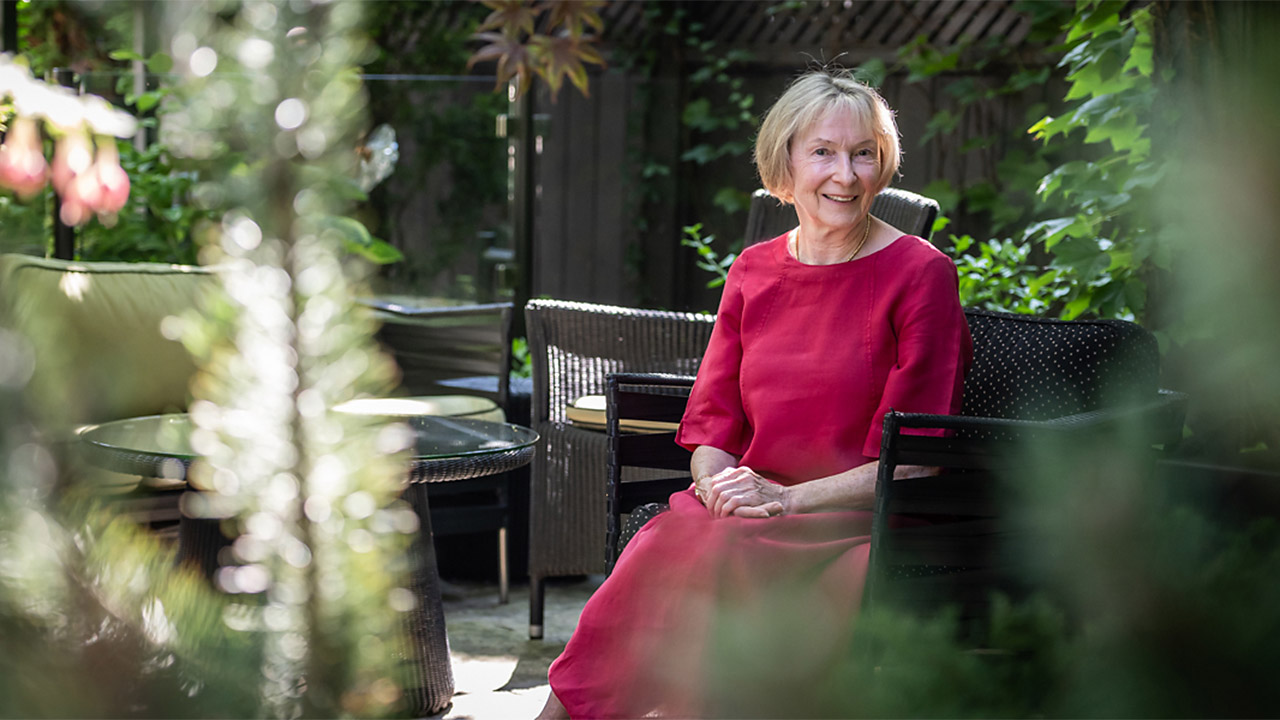Fanshawe receives $5 million donation to revolutionize healthcare education
 CREDIT: FANSHAWE COLLEGE
CREDIT: FANSHAWE COLLEGEThe Diane Blake (pictured) Centre of Excellence for Extended Reality (XR) in Health Care, set to open in 2024, will house a multidisciplinary team of experts who will collaborate on developing immersive and interactive XR training programs.
Toronto-based philanthropist Diane Blake has donated $5 million to Fanshawe College to establish the Centre of Excellence for Extended Reality (XR) in Health Care. The centre will be part of Innovation Village at Fanshawe’s London Campus. According to the college, this contribution will help enhance training and improve outcomes with XR technology. The Diane Blake Centre of Excellence for XR in Health Care is expected to open in early 2024.
“The integration of new technologies into traditional program modalities will give more students the opportunity to learn, practice their skills and enter the job market ready to excel. I am confident students at Fanshawe will benefit greatly from this initiative,” Blake said.
XR technology is shorthand for “extended reality” and is an umbrella term that refers to augmented reality, virtual reality and mixed reality tech. The centre will house a multidisciplinary team of experts, including students from multiple programs such as engineering, computer science and gaming, who will collaborate on developing immersive and interactive XR training programs. These programs will simulate real-life medical scenarios, allowing students and professionals to gain practical experience and refine their skills in a risk-free environment.
The tech will help students practice complex procedures, conduct diagnoses and interact with virtual patients. Fanshawe’s Dean of the Faculty of Health, Community Studies and Public Safety Tony Malette said that the project will be built in several phases over five years.
“The first phase is investing in people, and we’re going to hire our team and get our expertise in place,” Malette said.
They are looking to get the XR up and running as quickly as they can. Malette said that they understand some of the technology is not needed for their specific needs in healthcare. Some of the tech from the UK or USA has different units of measurement and different protocols. He said that their healthcare systems are different and don’t fully align with what is needed here for Canadian healthcare.
“Our goal over the five-year period is to start developing our own material and becoming a hub where we start to generate and build technologies that will better meet our needs,” Malette said.
The plan is to help graduates hit the ground running and do great work in the healthcare industry. Malette said the idea is to put students in a safe environment where they can make mistakes. This is where they can help teach students to learn from their mistakes and how to improve on their skills. Malette said traditionally they couldn’t do this since they would be making these mistakes in real hospitals. It would end up that the student would get bailed out by a doctor or nurse. The students would not get to work and learn through the problem anymore.
“Using this technology, we can put them through real life situations where they have to think their way from start to finish,” Malette said. “Plus, you’re not hurting anybody since it’s virtual and if the student makes a mistake we will debrief where that was and give them a skill set to do the proper procedures in real life.”
The timeframe for a healthcare student to get into the job field will not change. Malette said that there are mandated practices and procedures students go through to have access to writing the licensing exam. He said what this XR technology will do is to potentially help students to graduate on time.
Malette couldn’t believe it when he first heard about the $5 million donation.
“We’re extremely grateful to Diane for her generosity, she is such a sweet lady,” Malette said.
With all the new excitement of opportunities, Malette said that it’s time for them to roll up their sleeves and get to work with all their new plans.
“We extend our deepest gratitude to Ms. Blake for her visionary philanthropy and commitment to revolutionizing health-care education,” said President of Fanshawe College Peter Devlin in a statement.















